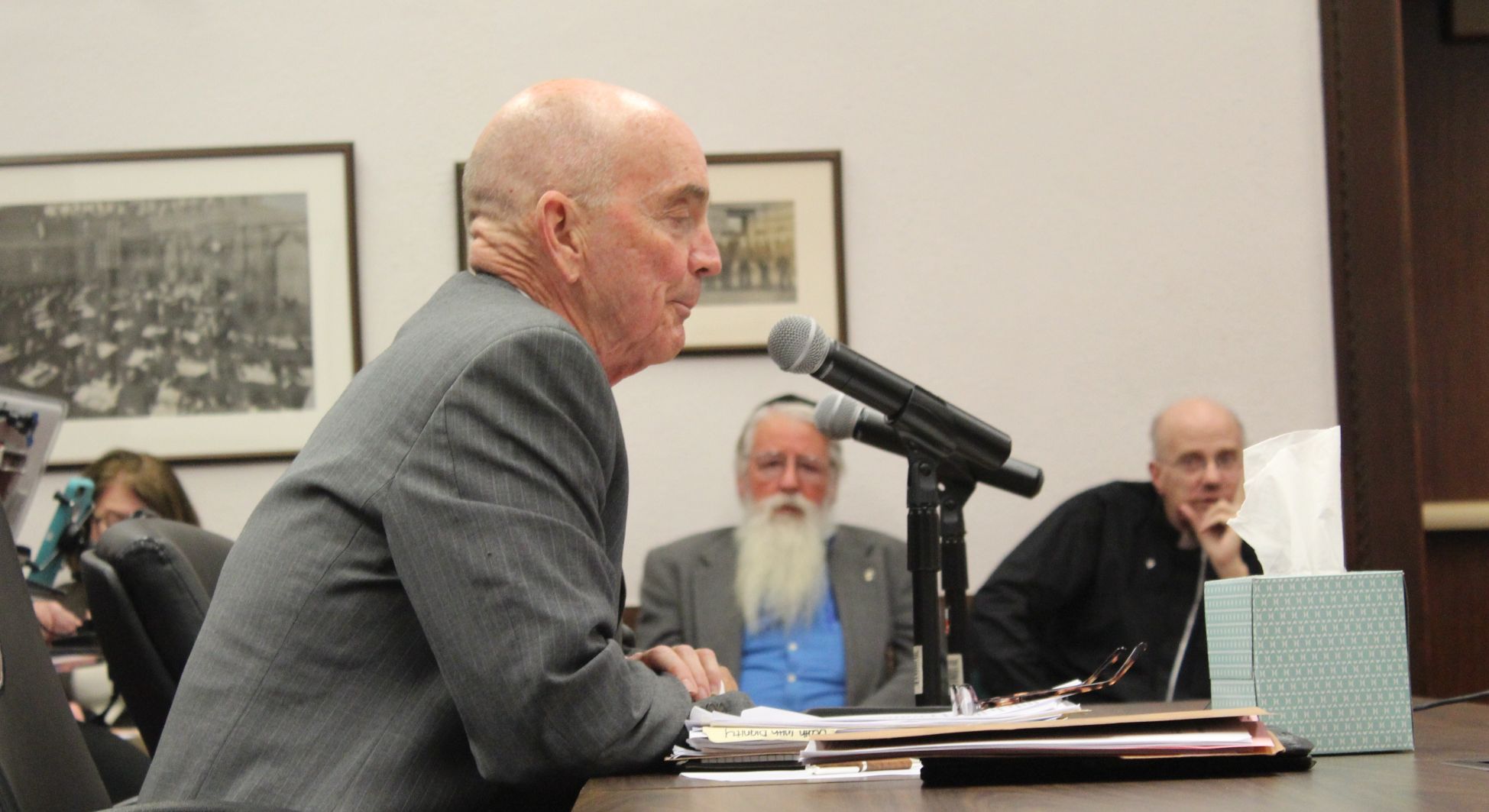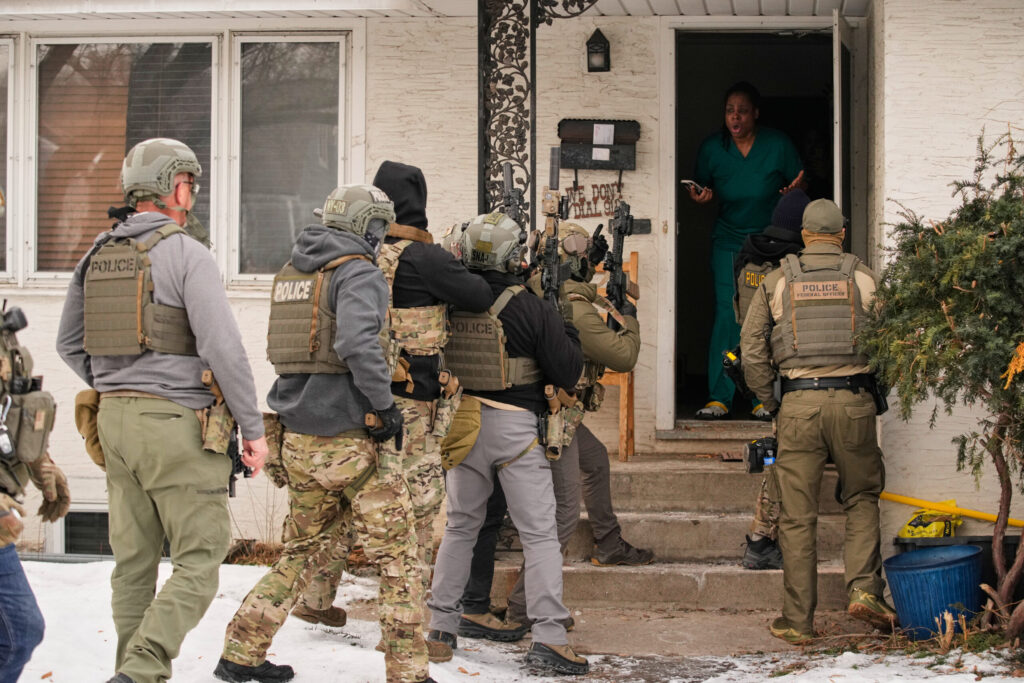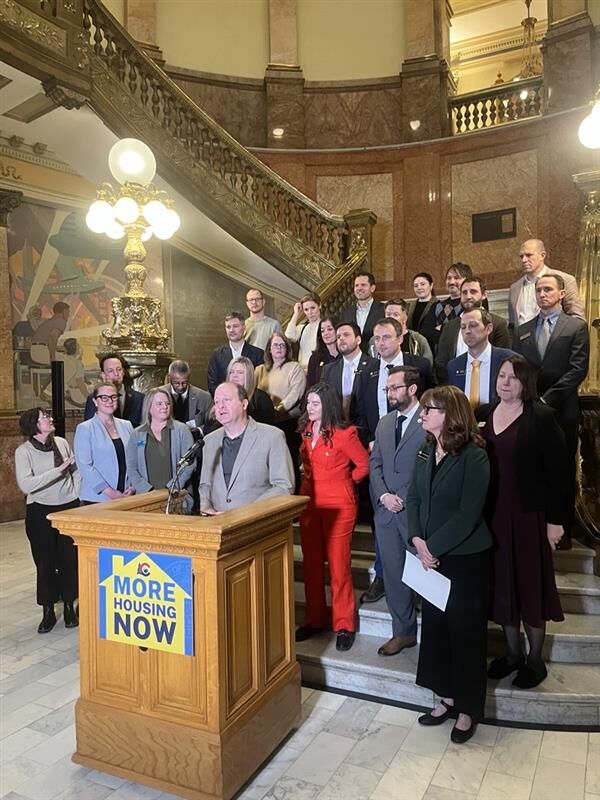Big ‘End of Life Options’ debate halted by election year politics

The strategy behind this year’s end-of-life physician assisted suicide bill was to get as many people as possible talking about it and to keep them talking about it as long as possible.
Which is why it came as a shock to many at the Capitol Wednesday that the sponsors of House Bill 1054, Reps. Lois Court, D-Denver, and Joann Ginal, D-Fort Collins, pulled it from consideration just before much-anticipated debate was scheduled to begin on the House floor.
The two lawmakers were furious at the turn of events.
“I am profoundly disappointed we have gotten to this point. I am profoundly disappointed in you, colleagues,” Court said from the front of the chamber.
“The choice we made today was to give you the relief from having to have this conversation, because we know many of you have deeply held convictions that make you uncomfortable with this bill, so we are doing you this favor to not have this debate,” she said. “But make no mistake, the voice of the people of this state will be heard. You will hear from your constituents one way or the other.”
Video Courtesy Colorado Channel
A legislative strategy abandoned
For weeks, Court and Ginal had reason to hope the bill would pass the Democrat-controlled House and move to the Republican-controlled Senate, where more lawmakers would be forced to field emotional testimony on the bill, consider the issues it concerns and then cast a recorded vote either for or against it.
Indeed, extending the messy right-to-die debate was at the heart of the sponsors’ efforts — a strategy adopted after a similar bill brought last year by Court and Ginal failed to pass even one House committee after facing intense opposition from faith groups and members of the disabled community, who feared right-to-die laws put them at risk of coercion and abuse.
But this past fall, California passed right-to-die legislation, making national headlines and stoking the confidence of supporters of similar legislation across the country.
Ginal, Court and Senate sponsor Mike Merrifield, D-Colorado Springs, told The Colorado Statesman weeks ago that pressing the issue by keeping the bill alive in both legislative chambers — and as the subject of news stories — for as long as possible would act as a public relations campaign to win over the hearts and minds of the public.
The legislative strategy they came up with was to introduce identical bills in the House and Senate to make certain that Senate committee members, at least, would have to weigh the kind of emotional testimony the bill inspires but that never made it to the Senate side of the building last year.
“This time around, we wanted to make sure senators would be able to experience what House health committee members experienced last year,” Ginal said. “That was difficult, long testimony, but I believe it was a real start.”
Although the Senate version, SB 25, failed at the beginning of February in its first and only committee hearing, Merrifield told The Statesman that he thought the legislative strategy was succeeding.
“This hearing went pretty much exactly as I expected,” he said then — and he meant that in a good way. “It was a good debate. It was a real debate,” he said.
Sen. Owen Hill, R-Colorado Springs, who had voted against the bill, told the hearing room crowd that he was “humbled and grateful” for the candor and bravery of the witnesses who testified. He said testimony resonated with him and gained relevance for calling up memories of his grandmother, plagued at the end of her life by the heartbreaking losses brought on by Alzheimer’s disease.
Sen. Jessie Ulibarri, D-Westminster, who had voted in favor, told the crowd that the debate had opened his eyes to the way people are apt to very narrowly think about “quality of life,” partly because of the instinct to “celebrate the able-bodied” in a way that blinds them to the experience of the disabled.
Before the abandoned Wednesday floor vote, Court and Ginal’s version of the bill had passed the House Judiciary committee. Taken together, the Senate and House hearings held on consecutive days stretched for more than 13 hours.
Supporters of the bills have repeatedly cited polls taken over the last two years in Colorado that have placed public support at more than 65 percent.
Good soldiers, but angry and determined
The fact that Wednesday’s House floor vote had been postponed repeatedly over the last two weeks signaled that the sponsors were working hard to shore up support — mainly among their Democratic colleagues.
“We were counting votes up until the very end,” Ginal told The Statesman. “They weren’t there.”
Ultimately, House Democratic leaders, with the agreement of sponsors, decided not to force their hesitant caucus members in an election year to put their positions on the bill on the record.
“There were some people here who just didn’t want to go through (with the floor debate),” Ginal said, “and I honor that.”
Court added that she also feared amendments prepped to be introduced Wednesday could end up altering the bill in ways she found unacceptable and that they might make it more difficult for her to introduce and pass this version of the proposal — either in the Legislature or at the ballot box — in the coming years.
“We think this bill will probably have to go to the ballot,” Merrifield said last week. “But when it does, the topic will not be new to the public, we hope, so people will have been thinking about what the subject is really all about.”
Ginal said that she has every intention of bringing the bill back again next year and that she hoped Court would sponsor it in the Senate. Court is running for Senate District 31, the Denver seat now held by Sen. Pat Steadman, who is term limited.
“We’ve already put this topic more under the public eye,” Ginal told The Statesman last week. “More of the truth about it will get out. More of the facts will be understood.”
“If nothing else,” she added, “there are families who have listened in and maybe participated who won’t have to come to the conversation for the first time during the last days of their loved ones’ lives. When it comes down to it, we make choices every day. This is a last choice. We should be able to leave this life the way we want to.”













